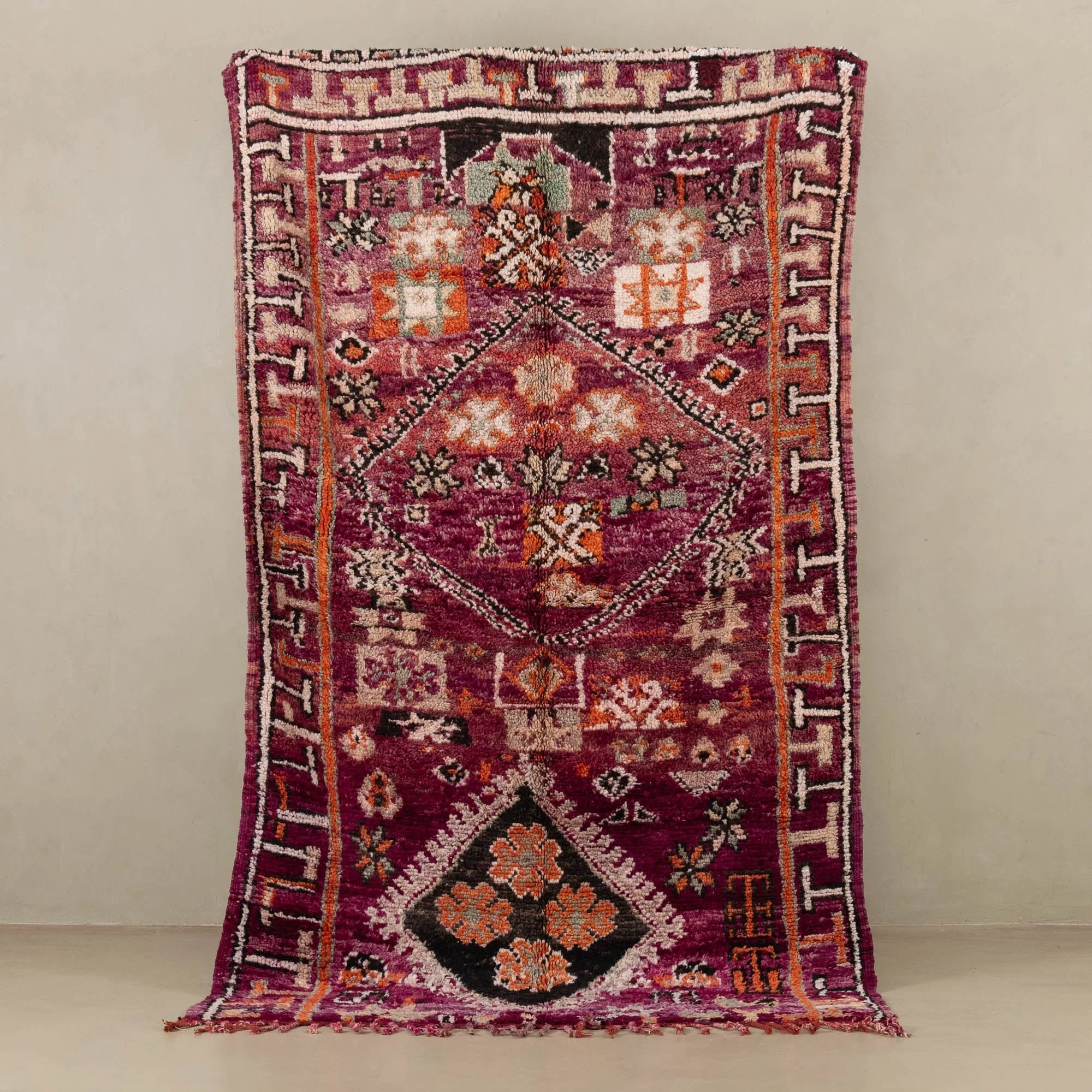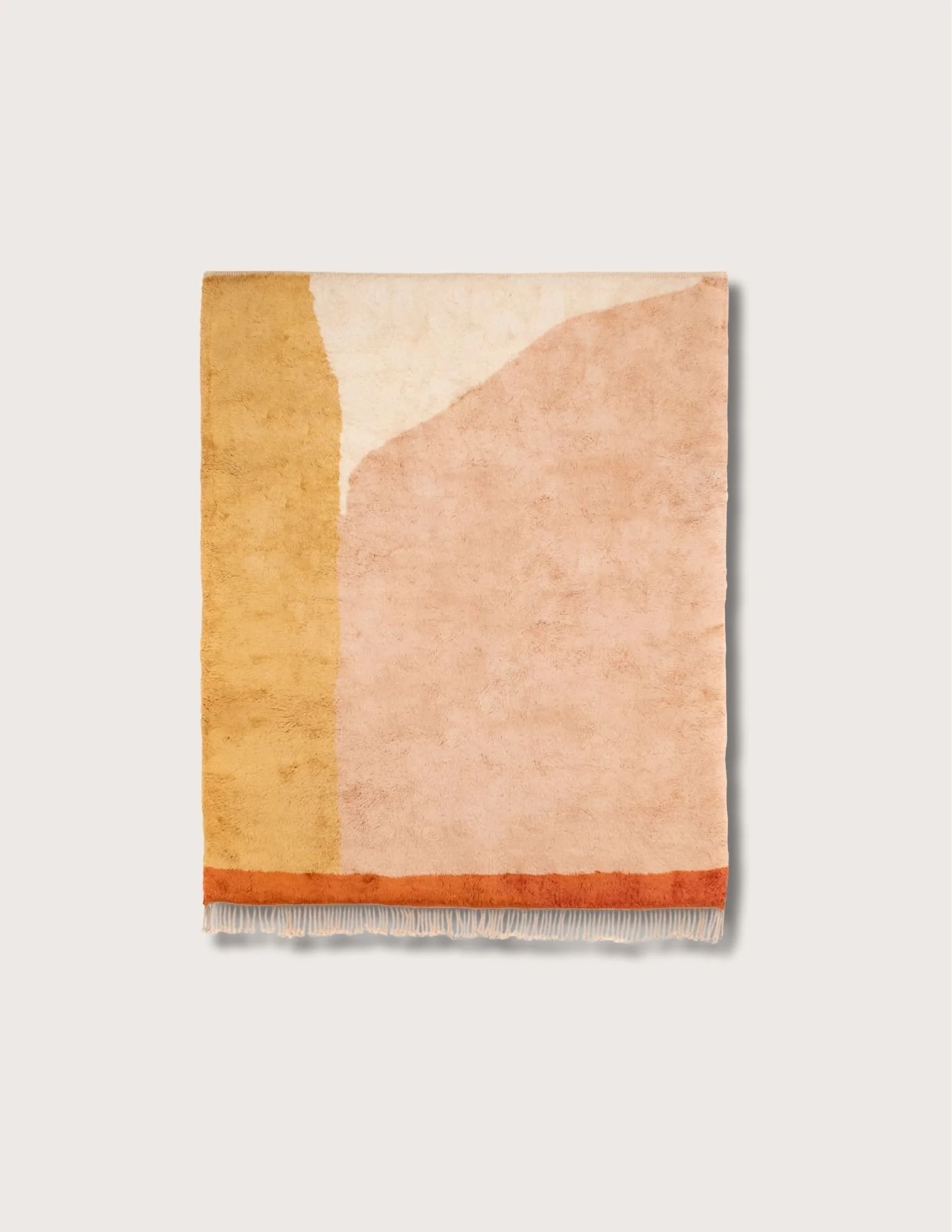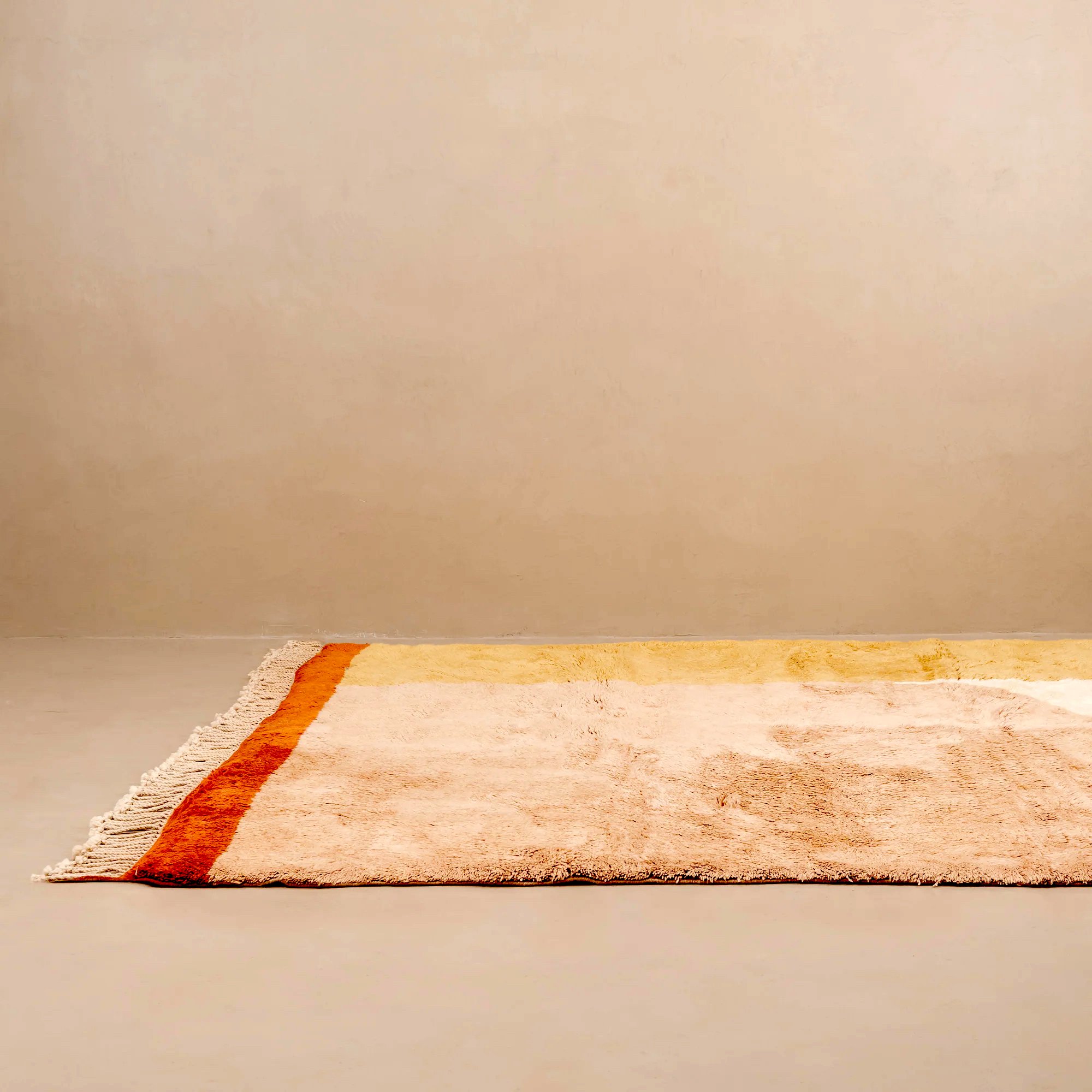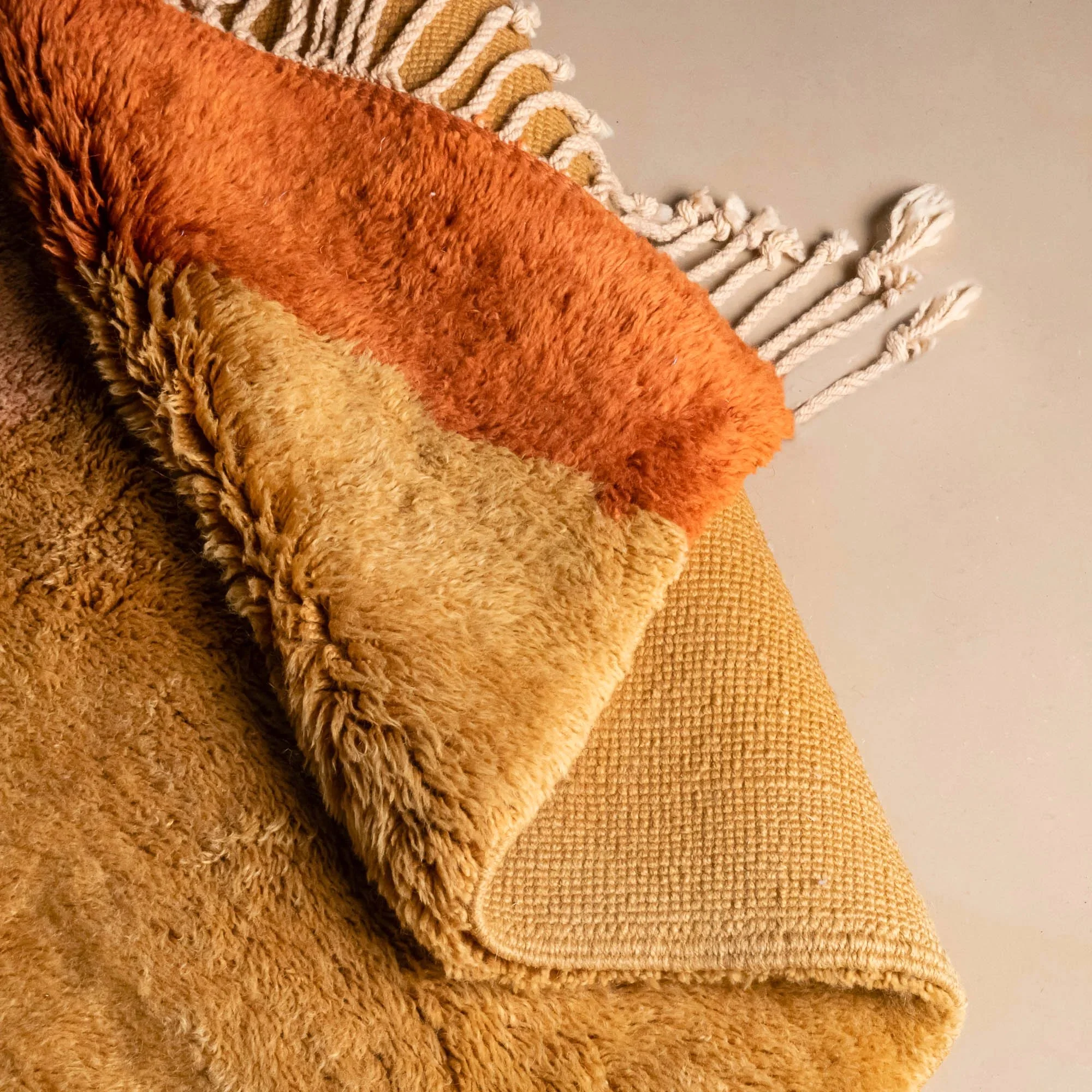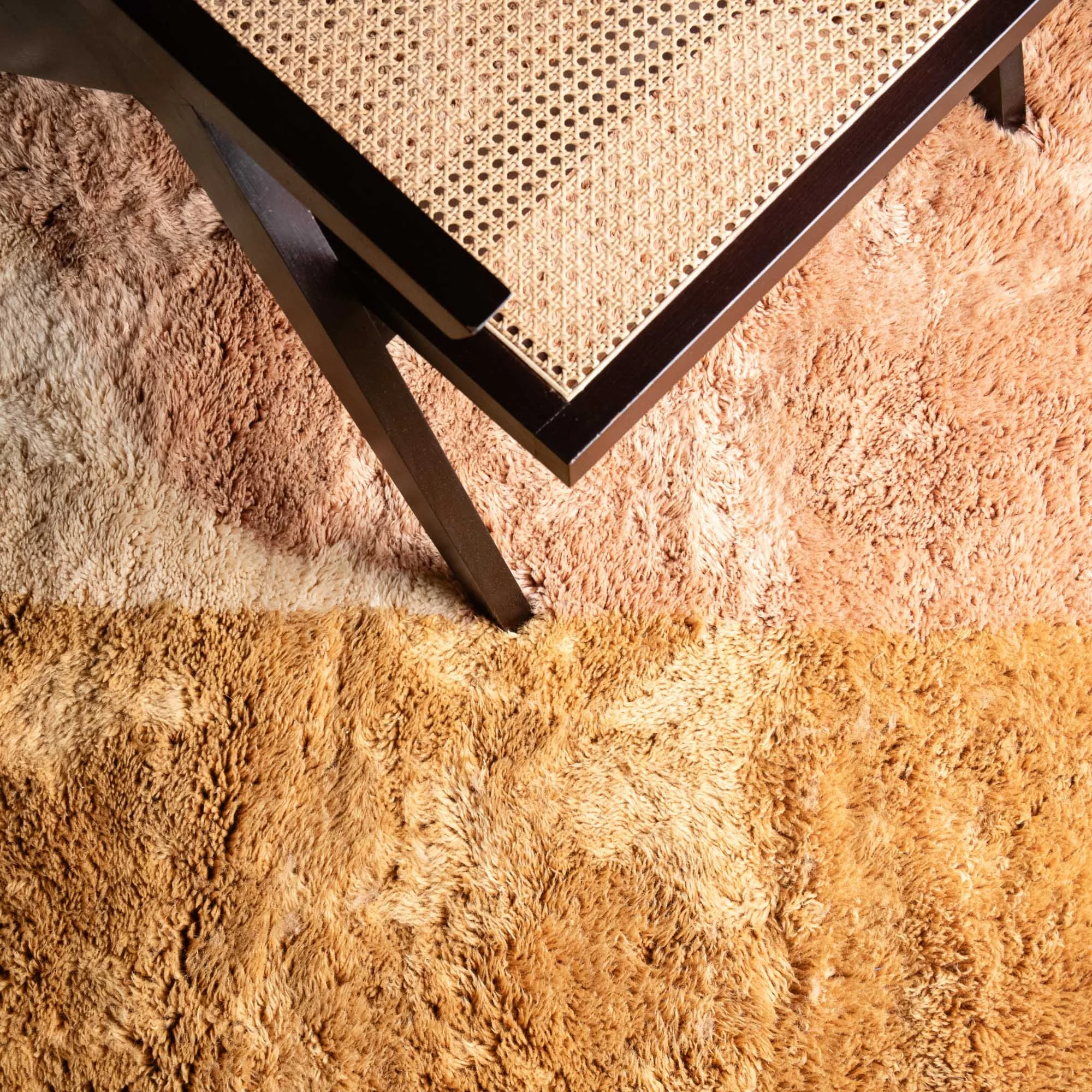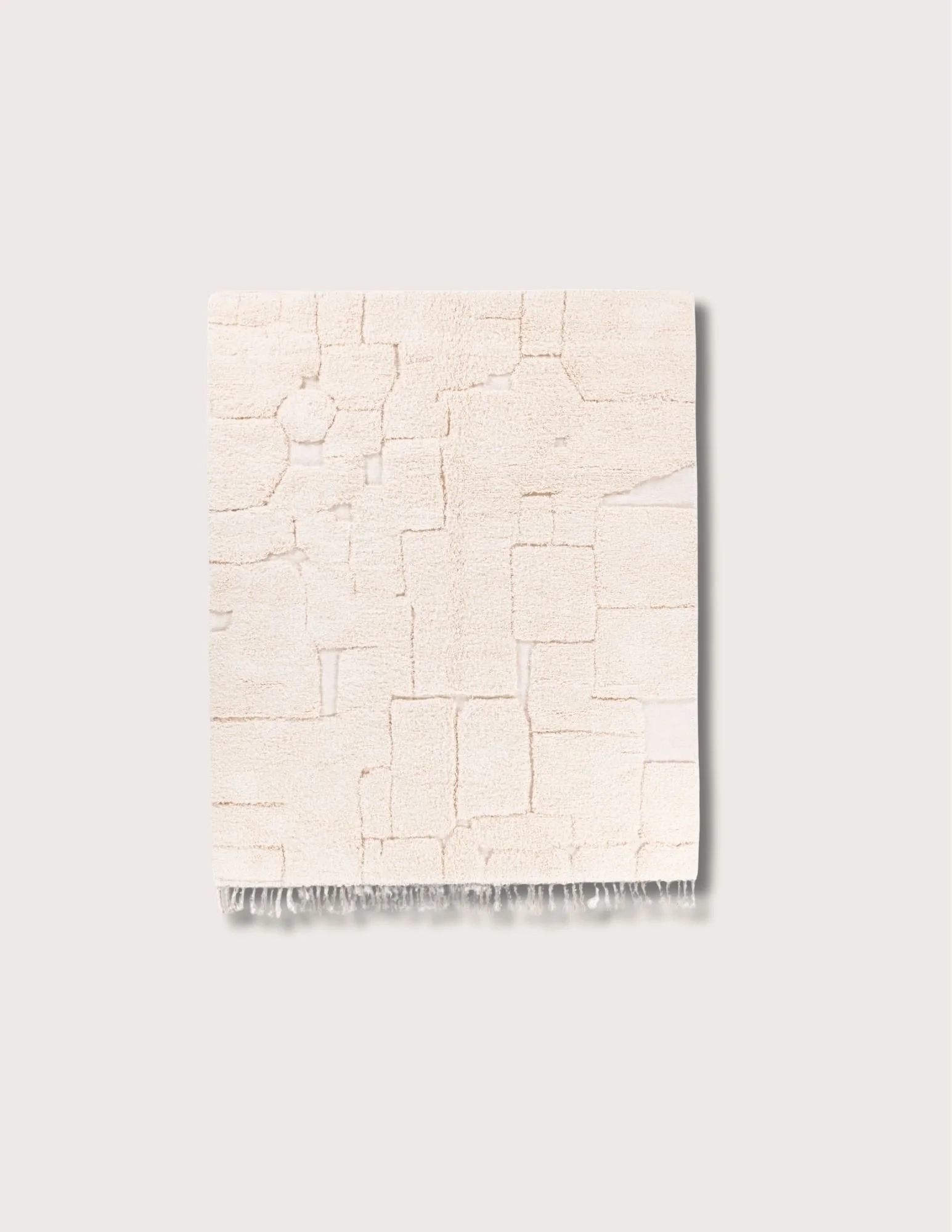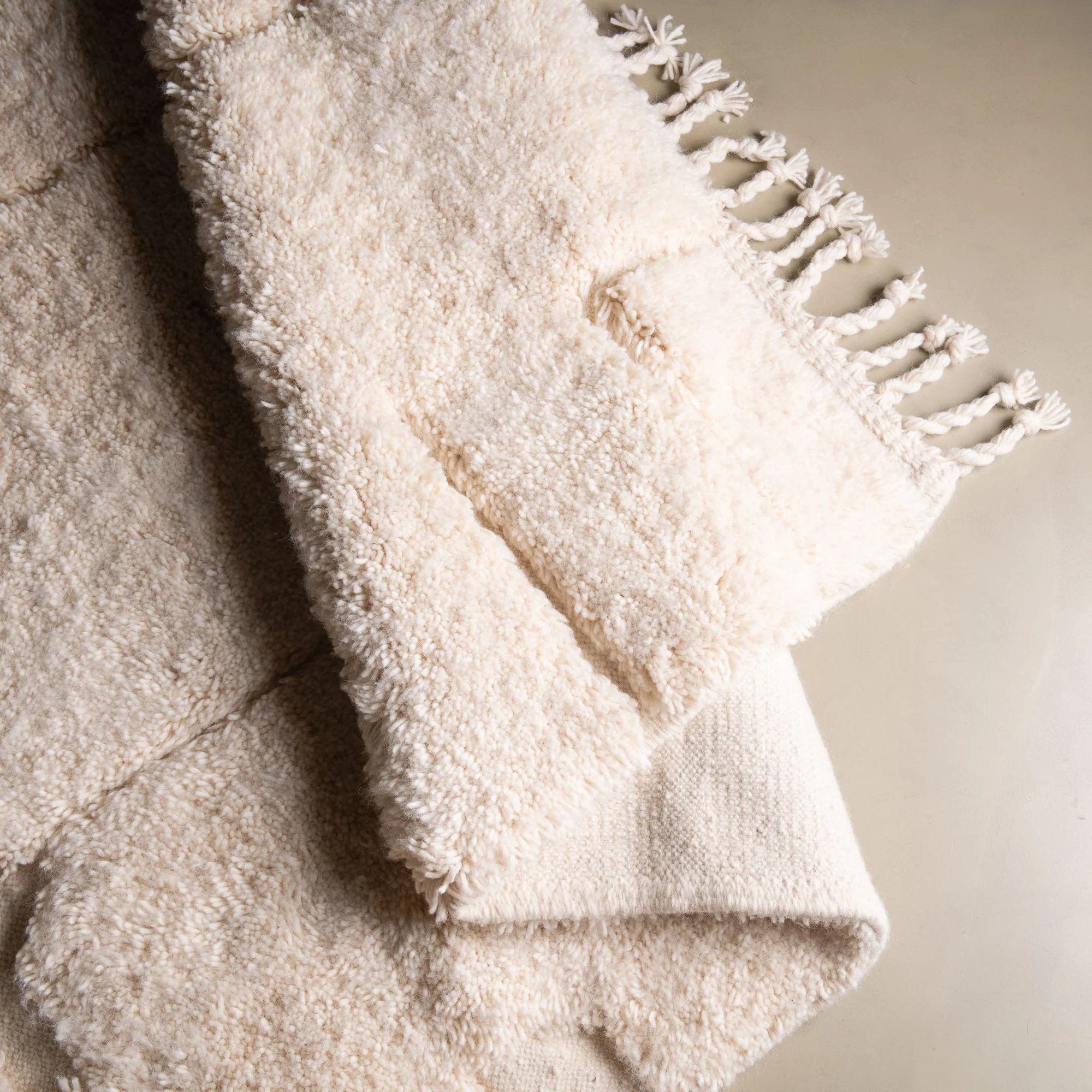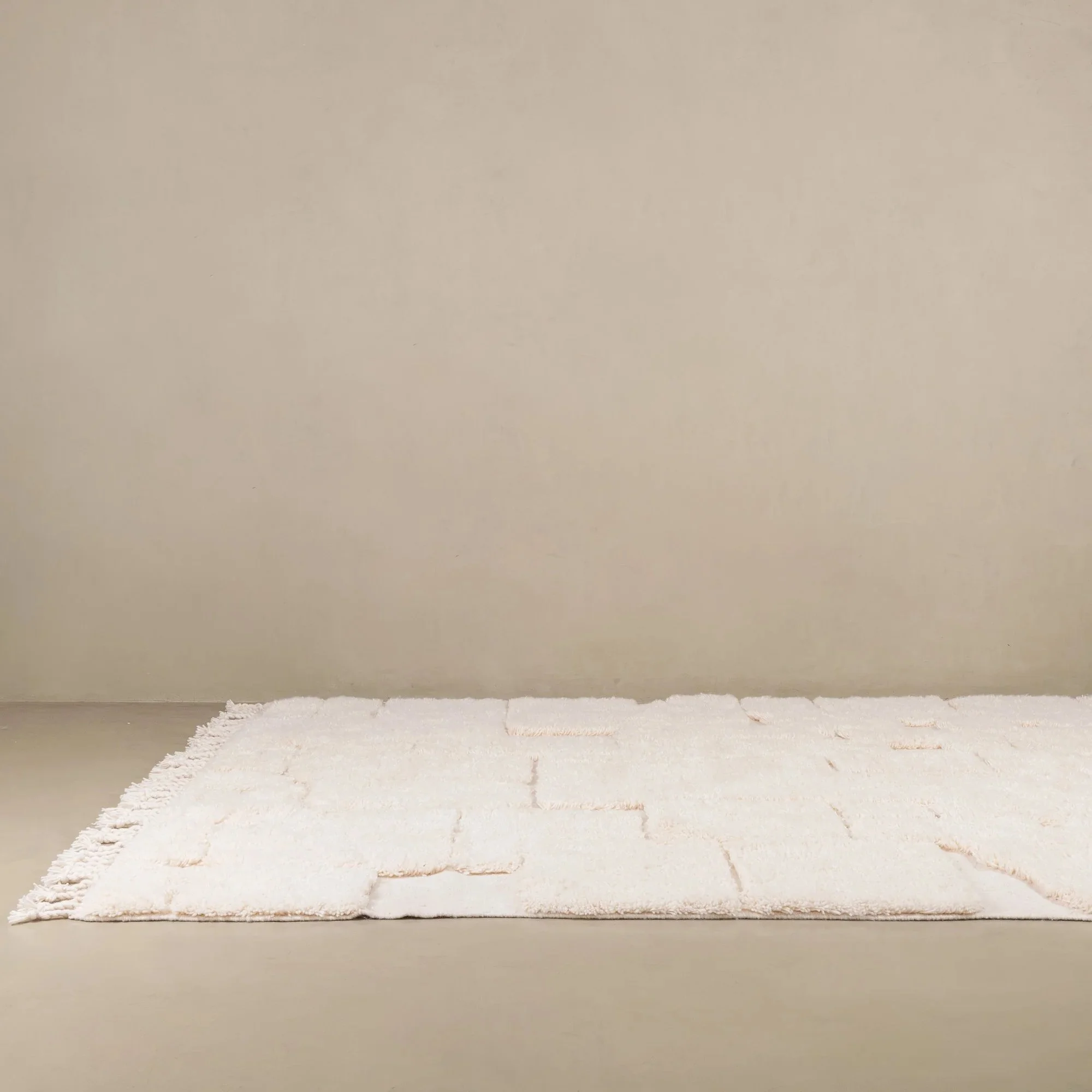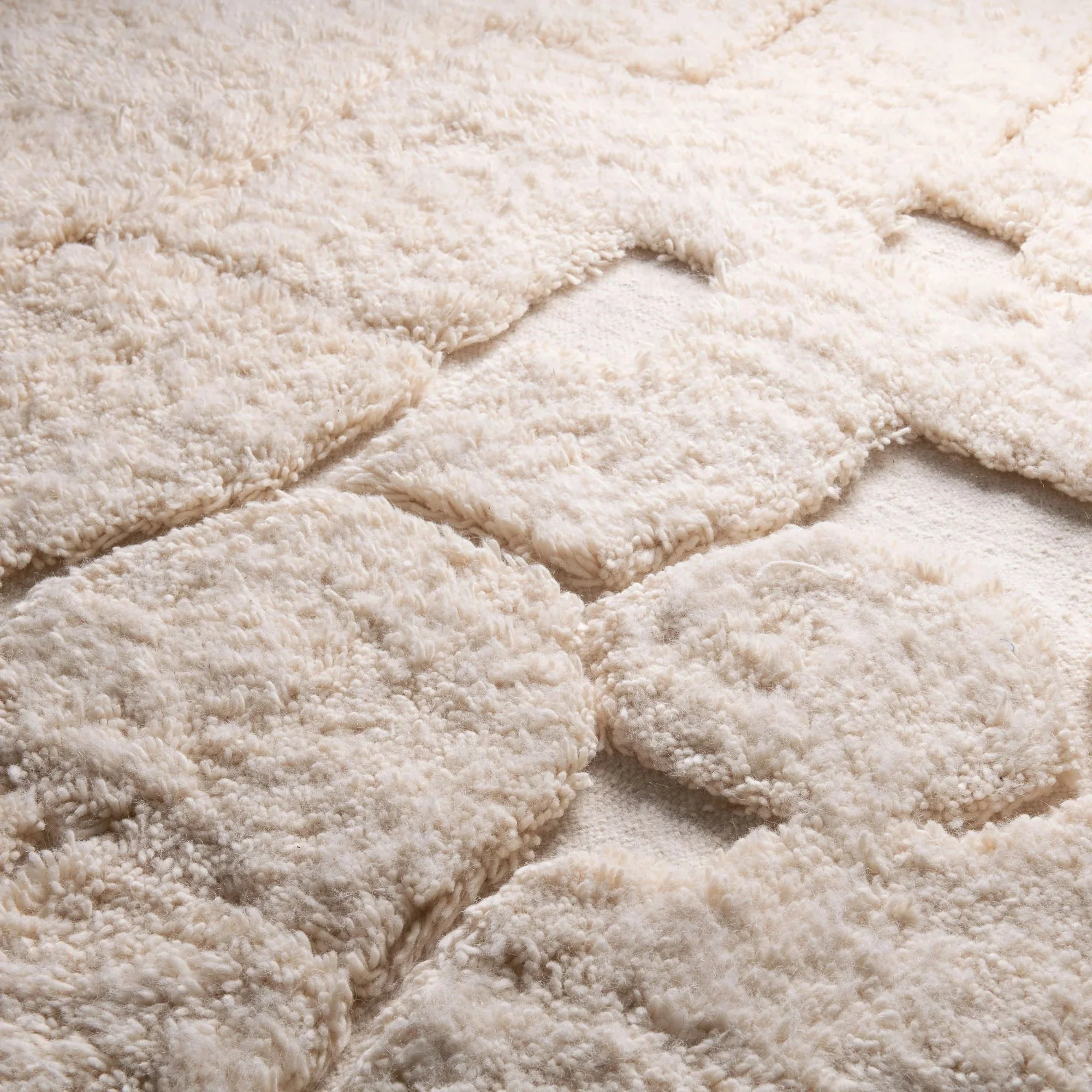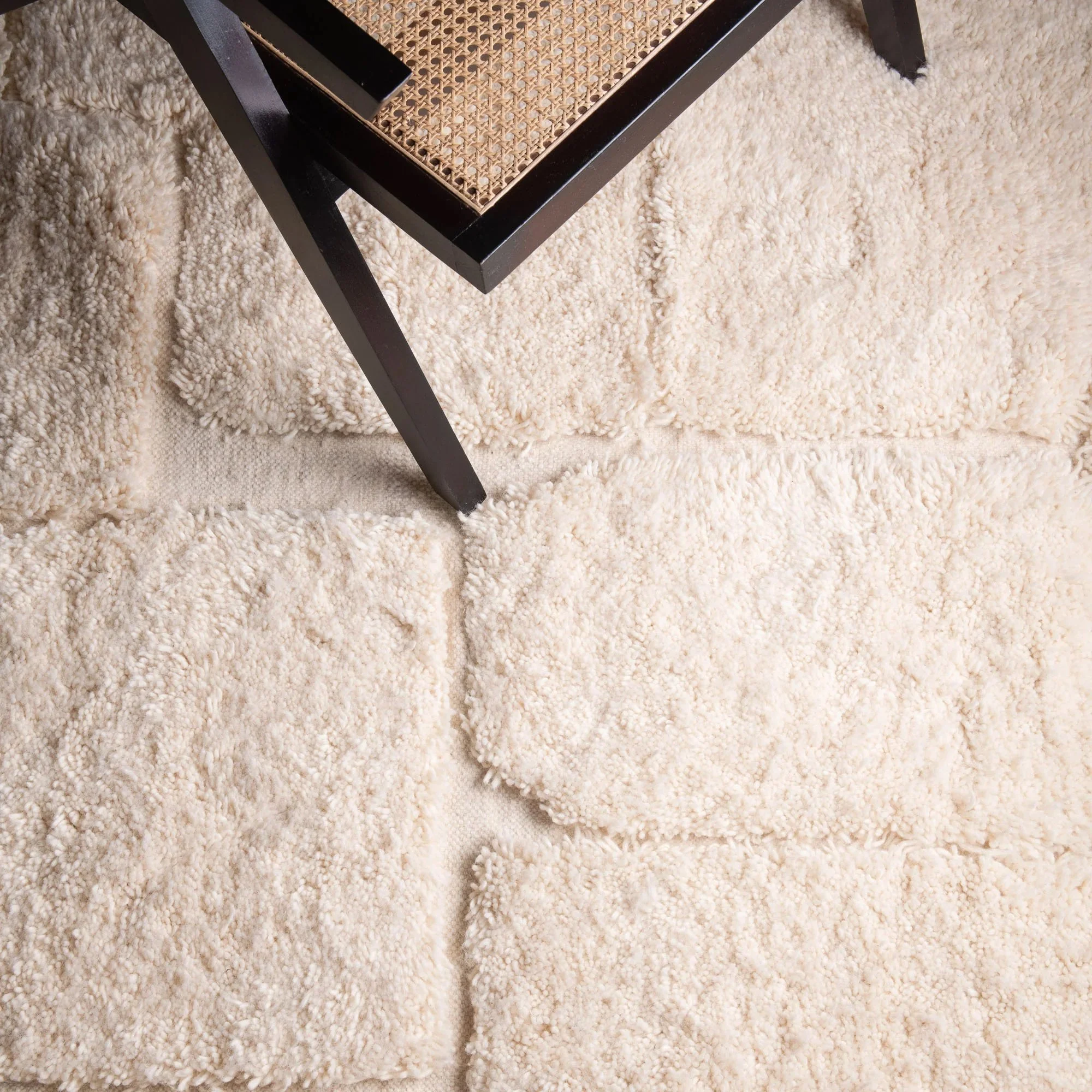 Image 1 of 6
Image 1 of 6

 Image 2 of 6
Image 2 of 6

 Image 3 of 6
Image 3 of 6

 Image 4 of 6
Image 4 of 6

 Image 5 of 6
Image 5 of 6

 Image 6 of 6
Image 6 of 6







Dusk Peach And Beige Wool Moroccan Rug
Details
Our Dusk Peach And Beige Wool Moroccan Rug is custom-made for you by exceptional artisans of the Beni Mrirt Tribe of Morocco. Handwoven using a luxurious blend of premium New Zealand wool and high-quality Moroccan wool, this innovatively refined combination offers unparalleled brilliance, superior softness, and lasting durability. A unique masterpiece for your interior, this rug is woven knot by knot, then bathed and air-dried under the serene Moroccan skies. Part of our Sojourner Rug Collection, each piece beautifully charts her journey to liberation.
Editors' Note
Our Sojourner Rug Collection is named for the powerful orator, activist and American hero, Sojourner Truth. Born into slavery as Isabella Baumfree (also, Bomfree or Bomefree) in 1797, on the Ulster County, New York plantation of the “Low Dutch” Ardinburgh family, Truth was part of a large community of enslaved people that had existed in New York since the early 1600s. Beginning first with the Dutch, and later the English as New Amsterdam made its 1664 transition into modern-day New York, slavery grew in the region until by Truth’s time, New York had the second largest enslaved population among the 13 colonies, trailing only South Carolina. Between 1806, when a 9 year-old Isabella was sold to a cruel and abusive Englishman, John Neely in Kingston, New York, and 1826 when she fled from bondage, Truth was sold no less than 3 times, married, and bore 5 children — one, her daughter Diana — the result of an assault by her final enslaver, John Dumont. In 1826, when Dumont reneged on a promise to free Isabella the year before the scheduled 1827 abolition of slavery in the state, she took her youngest daughter, Sophia, then only 3-months old, and escaped to the home of Isaac and Maria Van Wagenen in New Paltz. The Van Wagenens did not believe in slavery, but paid Dumont for her services for the year to ensure her safety. While there, after a lifetime of religious instruction and harrowing experiences, Isabella had a spiritual awakening that led her to become a preacher, and then — 17 years later — to rechristen herself as Sojourner Truth in 1843. Also, in 1828, Truth sued successfully for the return of her son, Peter, whom Dumont had illegally sold into slavery in Alabama. Called by the Spirit to speak the truth, Sojourner began to live as an itinerant preacher, traveling to speak and living with progressive communities such as the Northampton Association of Education and the Progressive Friends. Through these societies she came into contact with many leading abolitionists and suffragists, including William Lloyd Garrison, Lucretia Mott and Frederick Douglass. Known for her sonorous singing voice and the passion of her sermons, Truth became a sought-after speaker for both abolitionist and suffragist stages and a formidable proponent for both causes — particularly after the 1850 release of her autobiography, which was published by Garrison. The 1850s saw some of the highest points of Truth’s career as an orator, including her 1853 speech, What Time of Night It Is, delivered at a New York State meeting of the Women’s Rights Convention and her most quoted and remembered speech, the 1854 magnum opus, Ain’t I a Woman, given in Akron, Ohio for the Ohio Woman's Rights Convention. Tended to by two of her daughters, she passed away on November 26, 1883. In Washington D.C., Frederick Douglass dedicated a eulogy to her, encapsulating the meaning of her life and work in words that resonate equally today. “Venerable for age,” he said, “distinguished for insight into human nature, remarkable for independence and courageous self-assertion, devoted to the welfare of her race, she has been for the last forty years an object of respect and admiration to social reformers everywhere."
Details
Our Dusk Peach And Beige Wool Moroccan Rug is custom-made for you by exceptional artisans of the Beni Mrirt Tribe of Morocco. Handwoven using a luxurious blend of premium New Zealand wool and high-quality Moroccan wool, this innovatively refined combination offers unparalleled brilliance, superior softness, and lasting durability. A unique masterpiece for your interior, this rug is woven knot by knot, then bathed and air-dried under the serene Moroccan skies. Part of our Sojourner Rug Collection, each piece beautifully charts her journey to liberation.
Editors' Note
Our Sojourner Rug Collection is named for the powerful orator, activist and American hero, Sojourner Truth. Born into slavery as Isabella Baumfree (also, Bomfree or Bomefree) in 1797, on the Ulster County, New York plantation of the “Low Dutch” Ardinburgh family, Truth was part of a large community of enslaved people that had existed in New York since the early 1600s. Beginning first with the Dutch, and later the English as New Amsterdam made its 1664 transition into modern-day New York, slavery grew in the region until by Truth’s time, New York had the second largest enslaved population among the 13 colonies, trailing only South Carolina. Between 1806, when a 9 year-old Isabella was sold to a cruel and abusive Englishman, John Neely in Kingston, New York, and 1826 when she fled from bondage, Truth was sold no less than 3 times, married, and bore 5 children — one, her daughter Diana — the result of an assault by her final enslaver, John Dumont. In 1826, when Dumont reneged on a promise to free Isabella the year before the scheduled 1827 abolition of slavery in the state, she took her youngest daughter, Sophia, then only 3-months old, and escaped to the home of Isaac and Maria Van Wagenen in New Paltz. The Van Wagenens did not believe in slavery, but paid Dumont for her services for the year to ensure her safety. While there, after a lifetime of religious instruction and harrowing experiences, Isabella had a spiritual awakening that led her to become a preacher, and then — 17 years later — to rechristen herself as Sojourner Truth in 1843. Also, in 1828, Truth sued successfully for the return of her son, Peter, whom Dumont had illegally sold into slavery in Alabama. Called by the Spirit to speak the truth, Sojourner began to live as an itinerant preacher, traveling to speak and living with progressive communities such as the Northampton Association of Education and the Progressive Friends. Through these societies she came into contact with many leading abolitionists and suffragists, including William Lloyd Garrison, Lucretia Mott and Frederick Douglass. Known for her sonorous singing voice and the passion of her sermons, Truth became a sought-after speaker for both abolitionist and suffragist stages and a formidable proponent for both causes — particularly after the 1850 release of her autobiography, which was published by Garrison. The 1850s saw some of the highest points of Truth’s career as an orator, including her 1853 speech, What Time of Night It Is, delivered at a New York State meeting of the Women’s Rights Convention and her most quoted and remembered speech, the 1854 magnum opus, Ain’t I a Woman, given in Akron, Ohio for the Ohio Woman's Rights Convention. Tended to by two of her daughters, she passed away on November 26, 1883. In Washington D.C., Frederick Douglass dedicated a eulogy to her, encapsulating the meaning of her life and work in words that resonate equally today. “Venerable for age,” he said, “distinguished for insight into human nature, remarkable for independence and courageous self-assertion, devoted to the welfare of her race, she has been for the last forty years an object of respect and admiration to social reformers everywhere."
Additional Details
Authentic Premium Shag Moroccan Rug
Material: 100% All-natural wool
Color: Peach
Custom Made
Handwoven by Moroccan artisans
Due to its handcrafted nature, the final color and dimensions may vary slightly (±5%) from the specified measurements.
Ships free worldwide in 12-14 weeks
Care Instructions: Natural raw wool may contain small fibers during weaving. Over time, these threads/fibers will come to the surface. Don't panic - fiber loss is normal with new wool rugs and will fade over time. For long-lasting care, use a vacuum cleaner. If a stain was caused by a liquid, quickly use paper towels to absorb and then shampoo to clean. Professional dry cleaning recommended.









